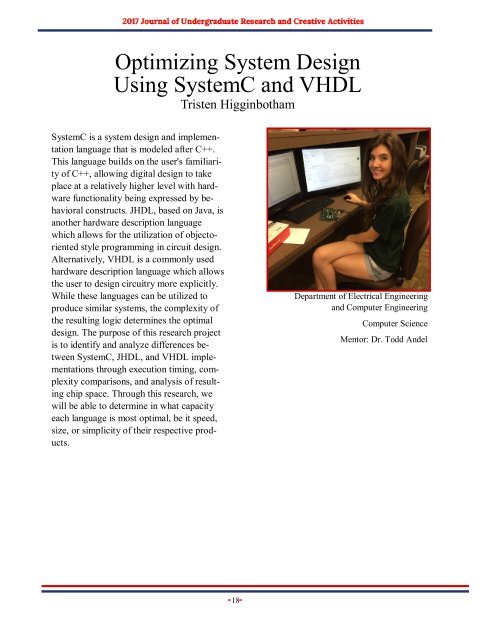JOURACA_SP_2017
You also want an ePaper? Increase the reach of your titles
YUMPU automatically turns print PDFs into web optimized ePapers that Google loves.
Optimizing System Design<br />
Using SystemC and VHDL<br />
Tristen Higginbotham<br />
SystemC is a system design and implementation<br />
language that is modeled after C++.<br />
This language builds on the user's familiarity<br />
of C++, allowing digital design to take<br />
place at a relatively higher level with hardware<br />
functionality being expressed by behavioral<br />
constructs. JHDL, based on Java, is<br />
another hardware description language<br />
which allows for the utilization of objectoriented<br />
style programming in circuit design.<br />
Alternatively, VHDL is a commonly used<br />
hardware description language which allows<br />
the user to design circuitry more explicitly.<br />
While these languages can be utilized to<br />
produce similar systems, the complexity of<br />
the resulting logic determines the optimal<br />
design. The purpose of this research project<br />
is to identify and analyze differences between<br />
SystemC, JHDL, and VHDL implementations<br />
through execution timing, complexity<br />
comparisons, and analysis of resulting<br />
chip space. Through this research, we<br />
will be able to determine in what capacity<br />
each language is most optimal, be it speed,<br />
size, or simplicity of their respective products.<br />
Department of Electrical Engineering<br />
and Computer Engineering<br />
Computer Science<br />
Mentor: Dr. Todd Andel<br />
18

















